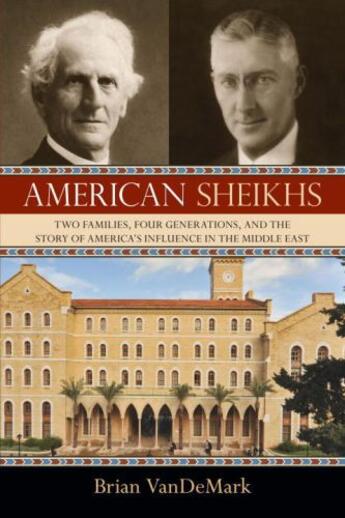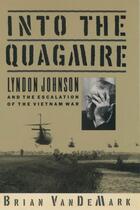-
Nombre de pages : (-)
-
Collection :
(-)
-
Genre :
(-)
-
Thème :
Non attribué
-
Prix littéraire(s) :
(-)
Résumé:
In 1866, American missionaries founded a small college in Beirut, Lebanon, called the Syrian Protestant College. Later renamed the American University of Beirut (AUB), what was a humble missionary school grew to become the most influential institution of higher education in the Middle East.... Voir plus
In 1866, American missionaries founded a small college in Beirut, Lebanon, called the Syrian Protestant College. Later renamed the American University of Beirut (AUB), what was a humble missionary school grew to become the most influential institution of higher education in the Middle East. Originally created by Rev. Daniel Bliss with the financial backing of businessman William E. Dodge, AUB, under the leadership of four generations of the Bliss and Dodge families, became the preeminent symbol of American culture and values in the Middle East. Its graduates include countless leaders, legislators, ambassadors, educators, scientists, doctors, and businessmen, whose lives and accomplishments played a significant role in much of the modern history in this critical region of the world.
American Sheikhs is not just the story of a great institution and the families who created and fostered it for almost 150 years. Author Brian VanDeMarks vivid narrative does indeed include the colorful history of AUB and many memorable episodes in a family saga, but he also pursues larger and more important themes. In the story of the efforts of these two families to build a great school with alternating audacity, arrogance, generosity, paternalism, and vision, the author clearly sees an allegory for the larger history of the United States in the Middle East.
Before 1945, AUBs history is largely positive. Despite American nationalism and presumptions of Manifest Destiny, Middle Easterners generally viewed the school as an engine of constructive change and the United States as a benign force in the region. But in the post-World War II era, with the rise of America as a world power, AUB found itself buffeted by the strong winds of nationalist frustration, Zionism and anti-Zionism, and--eventually--Islamic extremism. Middle Easterners became more ambivalent about Americas purposes and began to see the university not just as a cradle of learning but also as an agent of undesirable Western interests.
This story is full of meaning today. By revealing how and why the Blisses and Dodges both succeeded and failed in their attempts to influence the Middle East, VanDeMark shows how Americas outreach to the Middle East can be improved and the vital importance of maintaining good relations between Americans and the Arab world in the new century.
Donner votre avis















